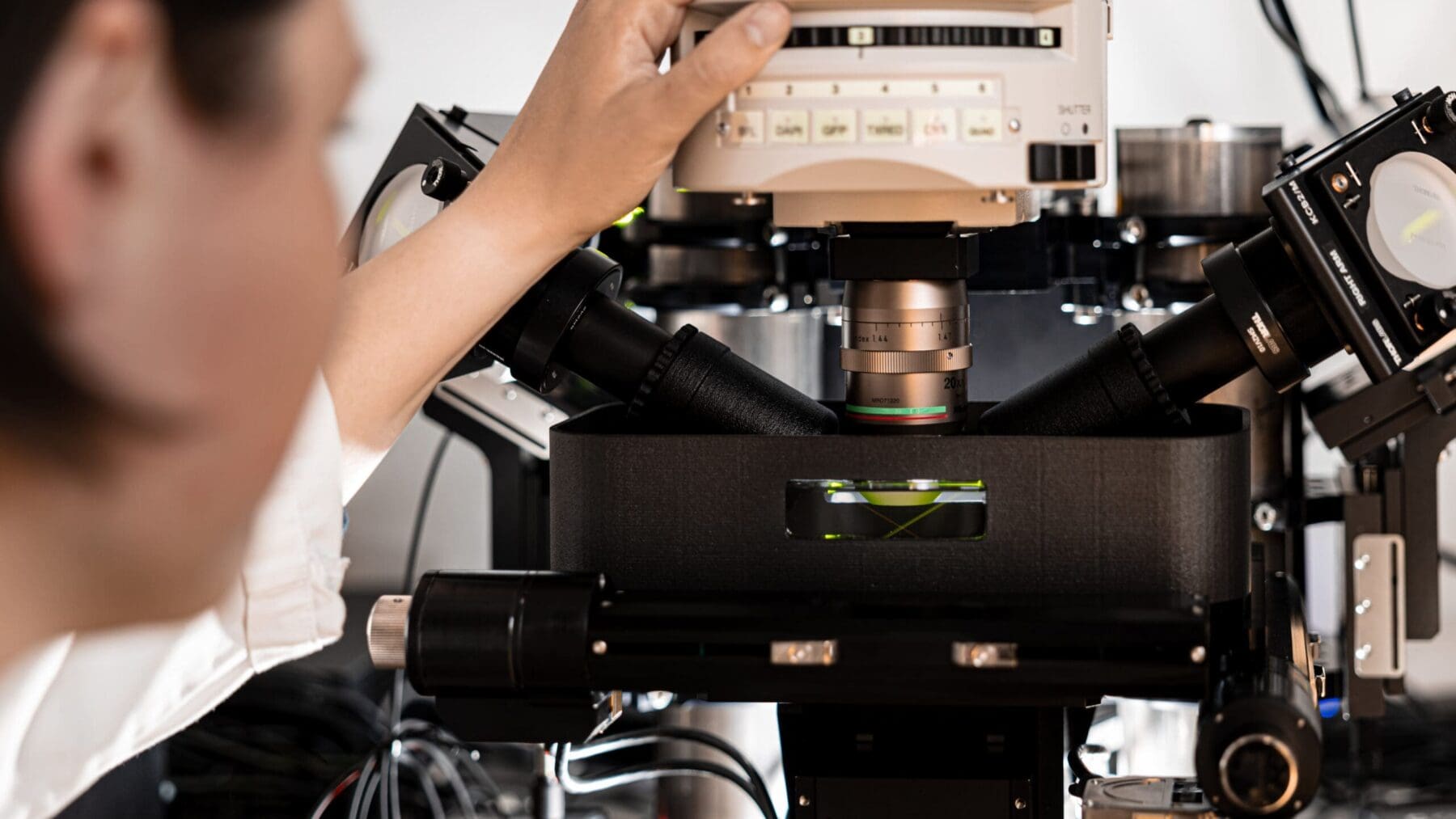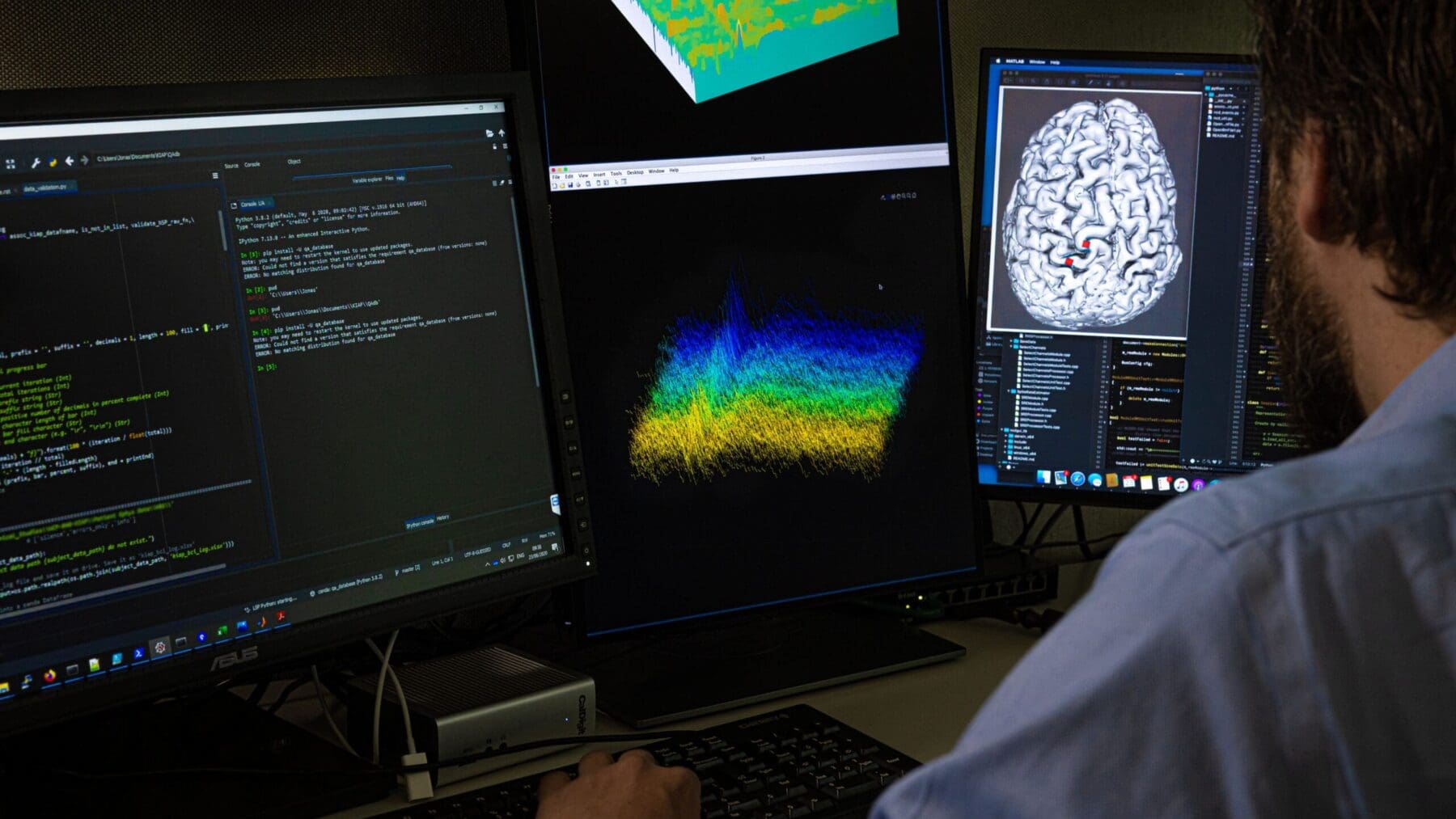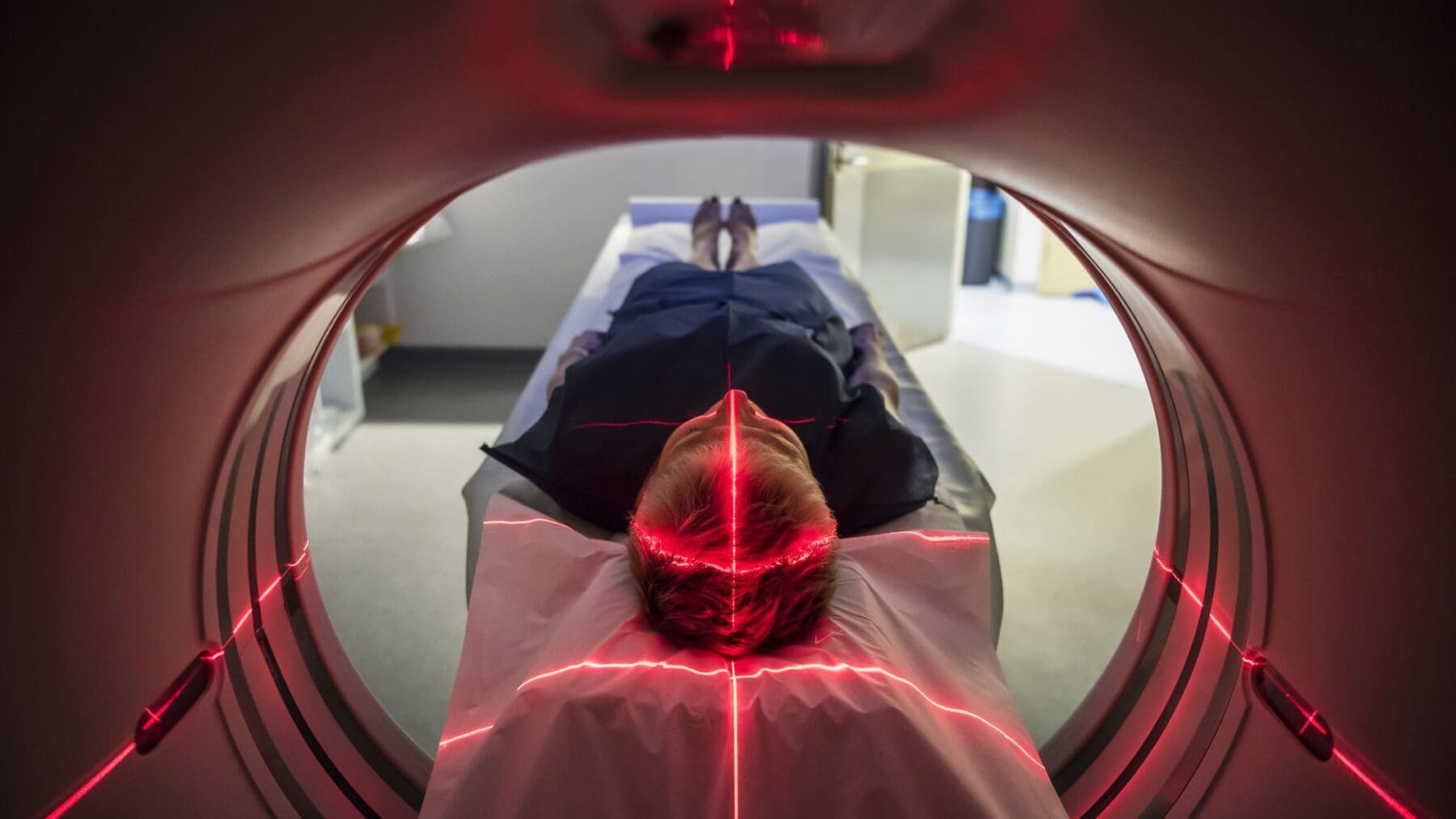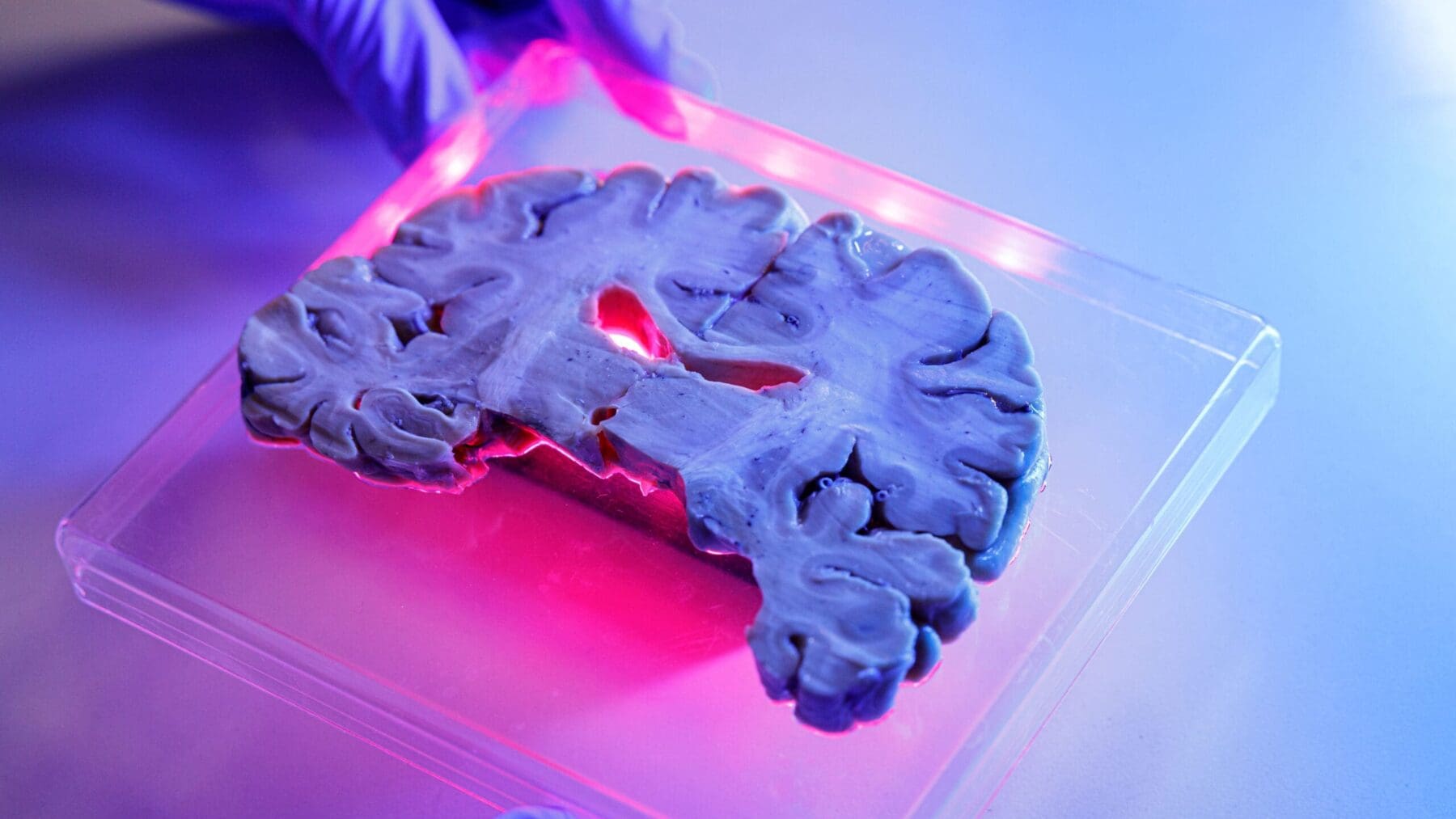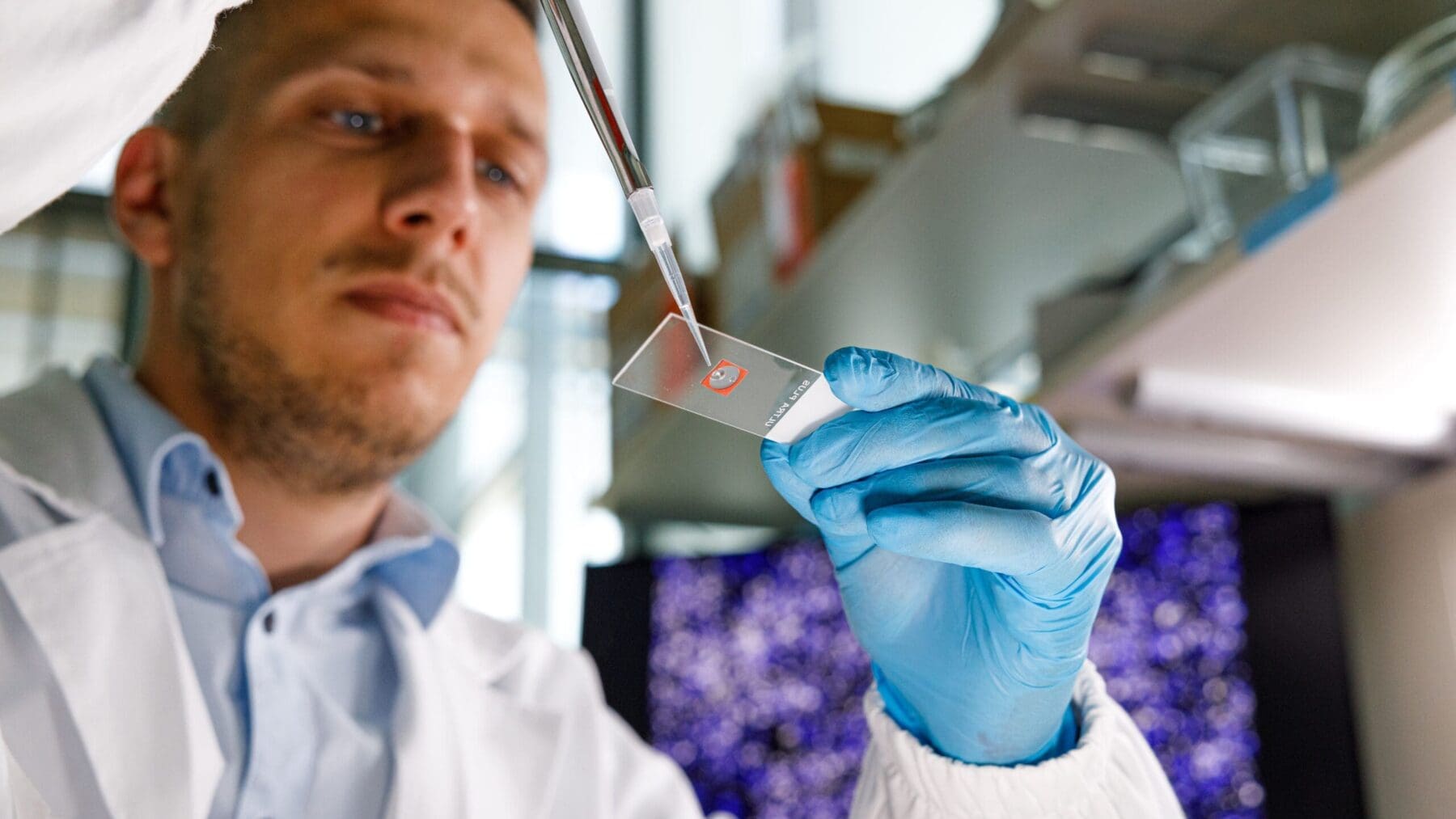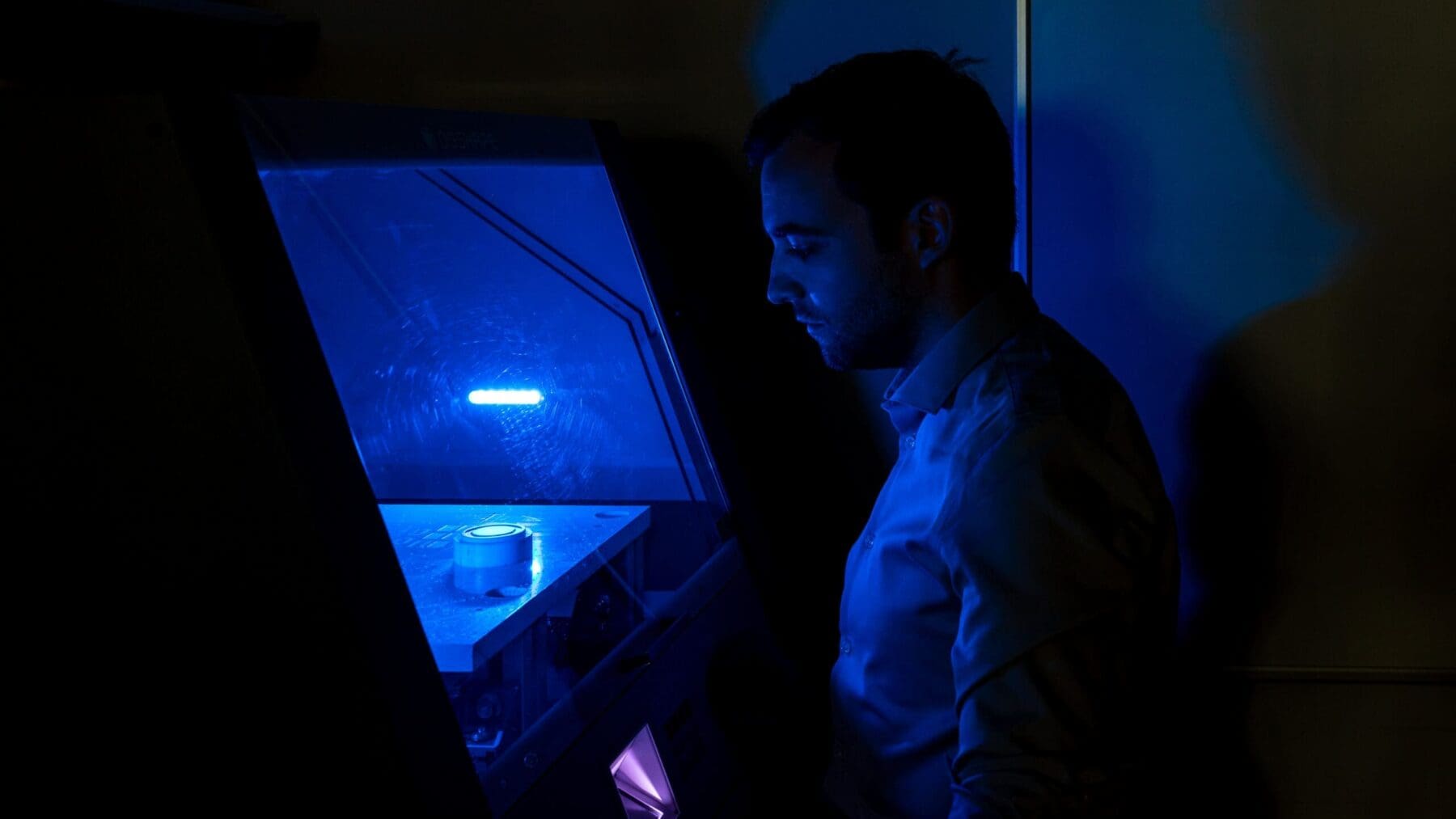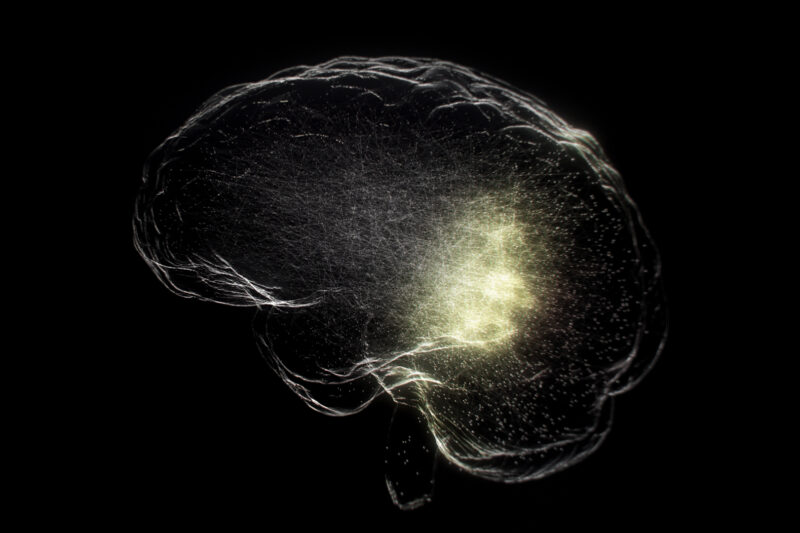11.03.2021
Shining a light on neurodegenerative disorders
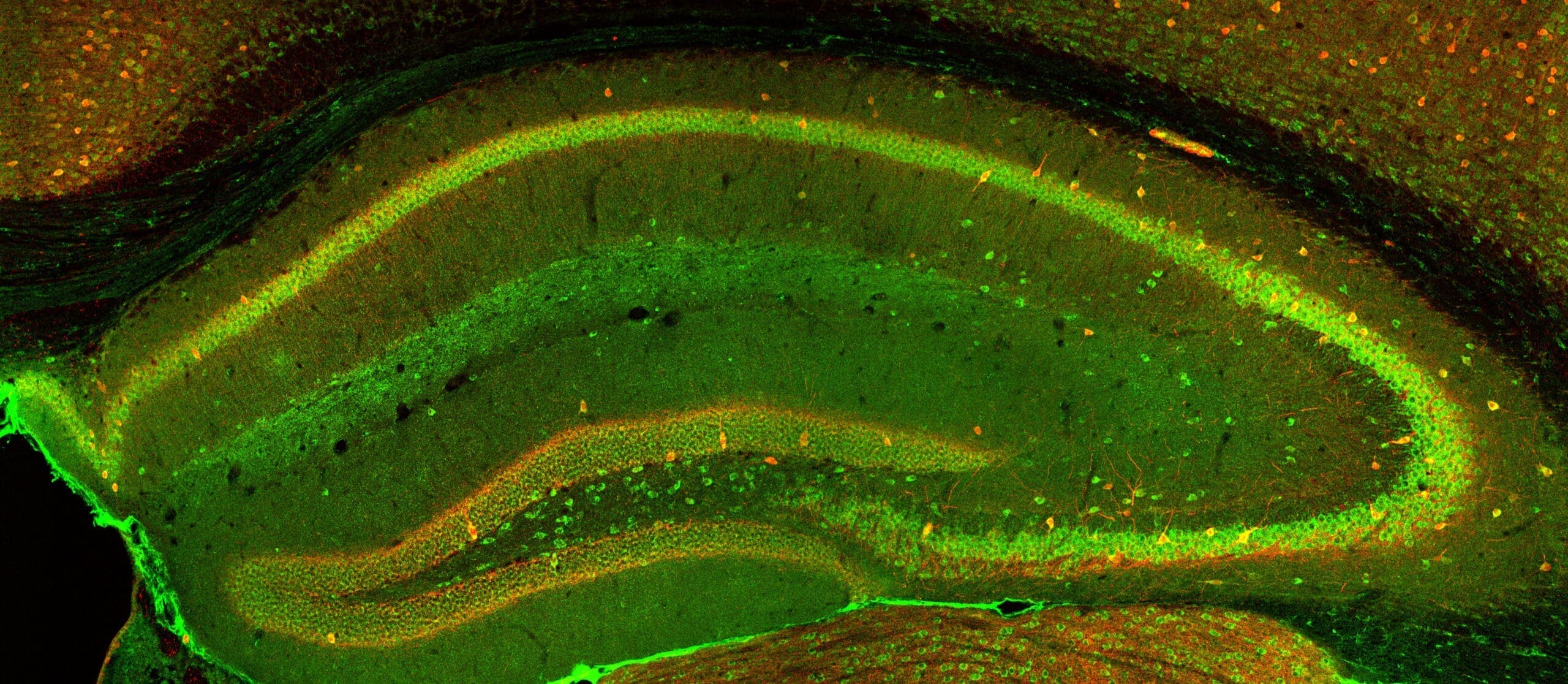
Could a ray of light stop rogue proteins in their tracks and slow the spread of neurodegenerative disease in the brain? EPFL and the Wyss Center are set to find out.
GENEVA AND LAUSANNE, SWITZERLAND – The Wyss Center and the Lashuel lab at EPFL announced today a collaboration to explore the potential of using light as a therapy for Parkinson’s disease and dementia.
From photosynthesis in plants to the photosensitive cells in our eyes, the ability of light to induce a biochemical reaction in living cells has long been known. Using near infra-red light, researchers have explored the potential of this phenomenon, known as photobiomodulation (PBM), to stimulate healing, relieve pain and – in recent years – as a therapy for brain disorders.
Promising animal trial data, from several independent laboratories including the Lashuel lab, have suggested that illuminating the brain may slow down neurodegeneration and have protective effects, while a trial at the University Hospital of Grenoble, coordinated by the Clinatec research center, is exploring the effects of PBM deep inside the brain in people with Parkinson’s disease.
A hallmark of neurodegenerative disorders is the accumulation of misfolded, self-replicating proteins in the affected brain regions. These rogue proteins cluster in toxic aggregations, that damage mitochondria – the powerhouses of cells – and cause other harmful events that ultimately kill neurons.
As the proteins multiply, and propagate from one cell to another, the disease spreads across the brain.
While there are likely to be several mechanisms at play, enhancing mitochondria with PBM appears to trigger a cascade of biochemical reactions which counteracts the damaging effects of the rogue proteins. There is also increasing evidence to suggest that PBM may also prompt neuroprotective mechanisms that reduce the harmful impact of the proteins on the other parts of the cell.
The encouraging results from studies so far and parallels in protein pathology between Parkinson’s disease and other neurodegenerative disorders, suggest that PBM may also work as a therapy for dementia. To investigate this hypothesis, the EPFL-Wyss Center collaboration will explore the biological mechanisms behind the effects of PBM in Parkinson’s disease, Alzheimer’s disease and frontotemporal dementia.
Using multiple preclinical models that mimic the key features of the diseases, the team will use a step-wise study design to assess the therapeutic potential of PBM alone as well as in combination with existing therapeutic drugs and state-of-the-art therapies such as electrical deep brain stimulation.
Prof. Hilal Lashuel, PhD, Director of the Lashuel lab at EPFL said: “Our collaboration with the Wyss Center goes far beyond a standard research approach of testing efficacy and is guided wholeheartedly by our vision to deeply understand the mechanisms underpinning photobiomodulation and the ways to exploit them for therapeutic benefits. From the systematic study design which includes the use of multiple models of Parkinson’s, Alzheimer’s and frontotemporal dementia, to careful consideration of future light delivery methods, this study is optimized for potential future translation.”
The collaboration will draw on expertise from the lab of Professor Philippe Renaud at EPFL whose team will develop a device to both precisely deliver light and sample biological byproducts of PBM in real-time. This will enable the researchers to pinpoint what is going on in the brain cells at the exact locations that light was administered.
“In parallel to investigating fundamental physiological mechanisms, we will also systematically characterize how light reaches its neural targets in human-scale models depending on the application site and the technology used to deliver it. If the results are positive, our integrative approach could one day inform the design of a clinical treatment system.” said Dr Aleksander Sobolewski, Wyss Center Neuroscientist.
“The mission of the Wyss Center is to advance our understanding of the brain to realize therapies and improve lives,” said Wyss Center’s CEO Dr Mary Tolikas, MBA. “We believe that the best way to achieve this is by joining our efforts with other innovative teams such as those of Profs. Lashuel and Renaud to enhance our chances of identifying new therapies.”
The experimental work will be carried out in both EPFL and Wyss Center laboratories and will combine expertise from the groups in neurobiology, microscopy, microfluidics, microsystems and pre-clinical neuroscience. In addition to Prof. Lashuel and Renaud, on the EPFL side, Honorary Prof. Hubert van den Bergh will also join the scientific effort. The team plans to expand the collaboration to clinical partners in Switzerland and internationally.
If you are interested in finding out more about this, and our other projects, please contact: info@wysscenter.ch
